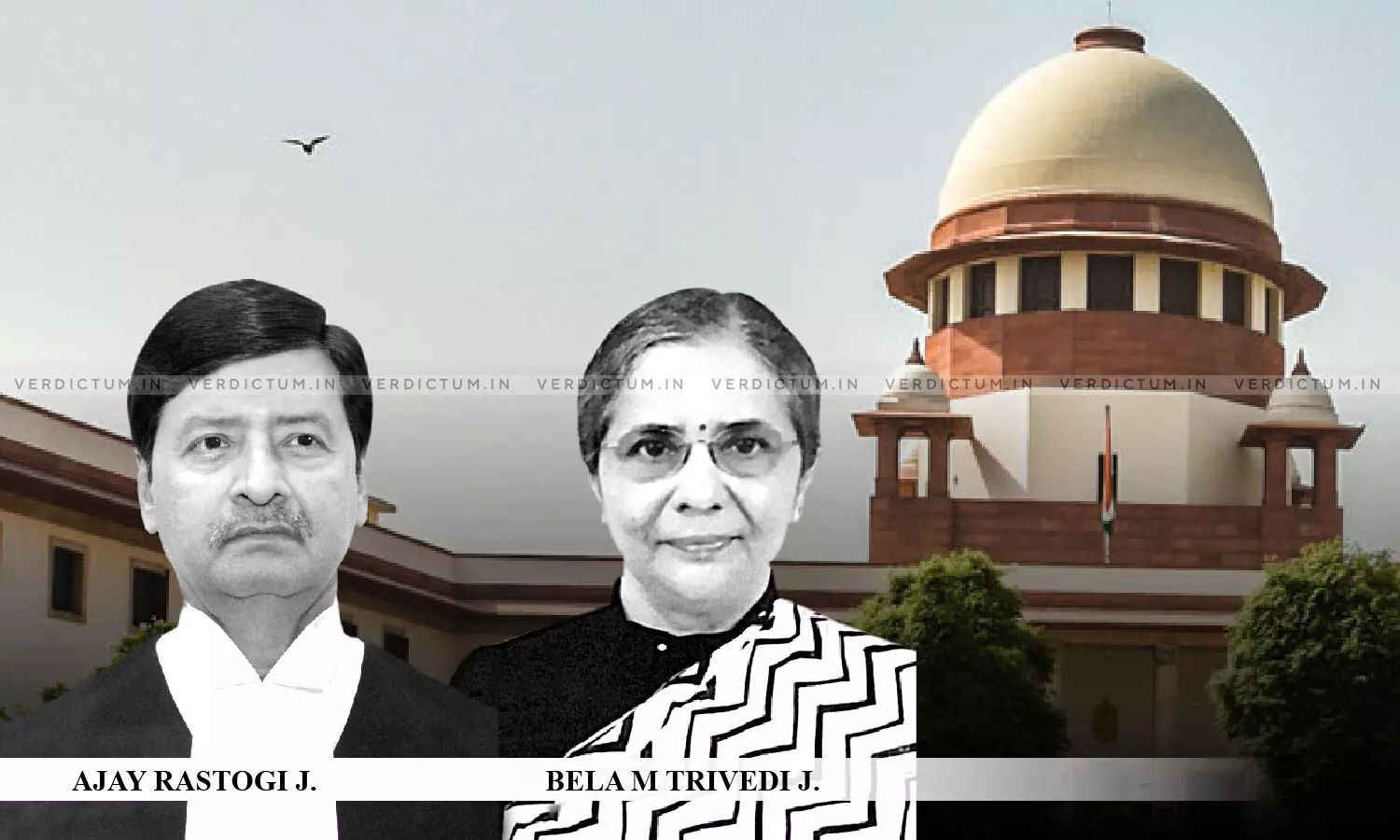
Death Of Victim Was Not Caused In Heat Of Sudden Fight- Supreme Court Upholds Conviction U/s. 302 IPC
 |
|The Supreme Court has held that the appellant-accused had been rightly convicted under Section 302 of the Indian Penal Code by the Trial Court as the accused had committed the murder in a premeditated manner.
The Bench of Justice Ajay Rastogi and Justice Bela M. Trivedi observed that “the death of the victim was not caused in the heat of the sudden fight and it was a case of murder under Section 302 IPC and not under any exceptions of Section 300 IPC.”
In this case, an appeal was preferred against the order of the Kerala High Court wherein the conviction of the appellant-accused under Sections 302 and 449 of the Indian Penal Code, 1860 (IPC) was upheld, and was sentenced to imprisonment for life.
It was the case of the prosecution that, the alleged incident had two separate incidents-
First, the accused came to visit the deceased house and picked up a quarrel with the deceased which led to the deceased giving a stab injury to the appellant –accused and the appellant rant away from the deceased’s house.
Second, while the deceased and his wife were asleep, the appellant stealthily entered into the house with a wooden stick and took a country grinding stone and hit on the victim’s head twice and then the appellant left.
Advocate Sangeeta Kumar appeared for the appellant and AOR Harshad V. Hameed appeared for the respondent-State.
The issue before the Court was whether the case fell within the contours of Section 304 Part I of IPC or not?
On perusal of the medical evidence by the Court, it was noted that the post mortem report revealed that heavy grinding stone was used for the commission of offence and the pressure was applied while injuries were inflicted over the vital parts of body of the victim.
The Court further noted that the appellant-accused was found guilty of murder mainly based on the oral evidence the wife of the deceased who was the eye-witness of the alleged incident and the eye-witness herself had sustained injury in the alleged incident.
“A strict scrutiny of the oral evidence tendered by PW13 would show that there is no embellishment but what is narrated by her is the true version of what she had experienced on the alleged date and time of the incident.” said the Court.
Accordingly, the appeal was dismissed.
Cause Title- Suresh v. State of Kerala
Click here to read/download the Judgment